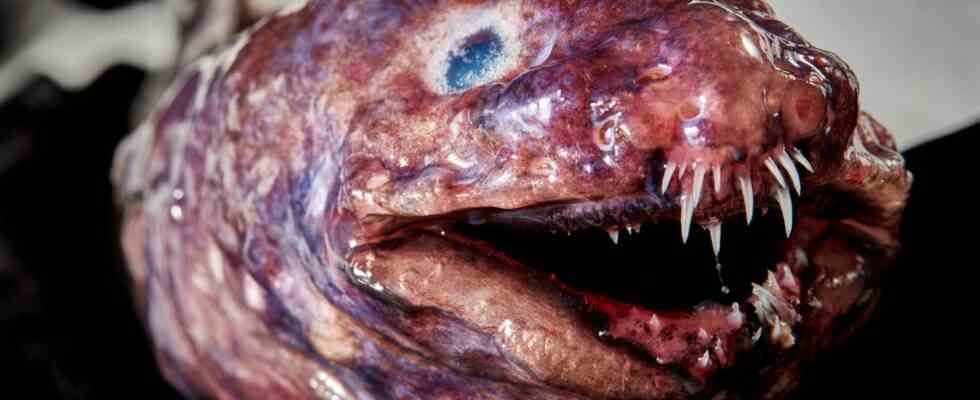Groundbreaking research is mentioned in the press release from the Victoria Museums in Australia. Scientists led by the Victoria Museums Research Institute have for the first time detailed mapped the seabed of Australia’s Cocos (Keeling) Islands Marine Park. They encountered flat, ancient sea mountains flanked by volcanic cones, gnarled ridges and canyons.
At a depth of up to 5000 meters, the researchers made impressive finds, such as a previously unknown blind eel. Or high-fin lizardfish, voracious deep-sea predators with mouths full of long, sharp teeth.
Researchers find plastic even at a depth of 4000 meters
“We have discovered an amazing number of potentially new species living in this remote marine park,” said Tim O’Hara of the Museum Victoria Research Institute, chief scientist on the expedition. The fish they found are extraordinary.
The plastic finds were less gratifying: According to the scientist, the pollution of the seas does not stop even in this area, which is far away from the mainland. You can even find plastic at a depth of four kilometers. “You see it in the water, you see it on the water, and we’ve seen it in our collections.”
According to the Guardian, few research expeditions come to the Indian Ocean, largely because it is so remote. It took O’Hara’s team six days to get from Darwin in northern Australia to the Cocos Islands.
Sources: GuardiansMuseums Victoria

